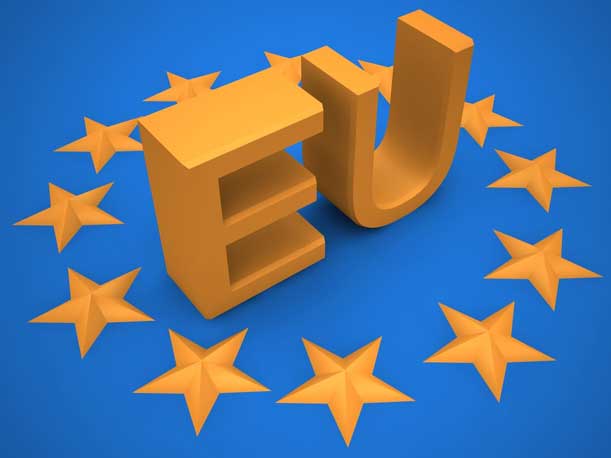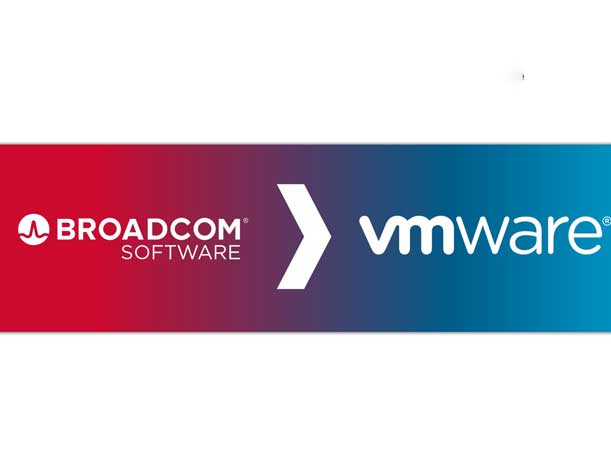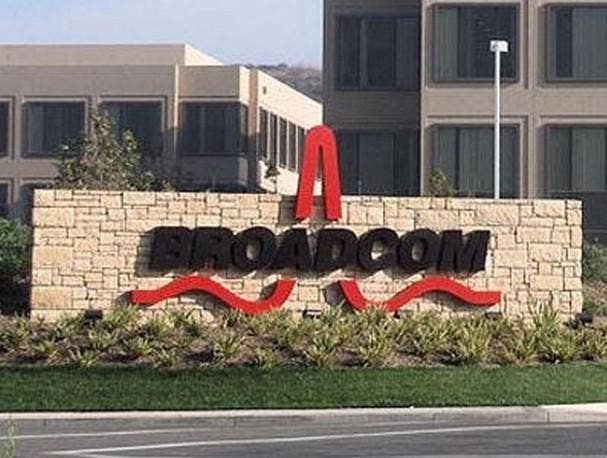Broadcom-VMware Wins Nod From European Commission: 5 Things To Know
‘While Broadcom believes that its proposed acquisition of VMware will only increase competition and innovation in cloud computing, Broadcom provided the European Commission with a technology access remedy that preserves interoperability, a core principle that would not have changed as a result of this transaction,’ according to a statement from Broadcom.

Broadcom and VMware have received approval from the European Union to go forward with their merger.
The $61 billion merger was allowed to pass only after Broadcom agreed to give rival Marvell independent access to VMware for 10 years, an independent trustee to monitor that access and a fast-track dispute resolution process.
“The commitments offered by Broadcom will enable its only rival, Marvell, to continue competing on equal footing and ensure a similar protection for any future entrants,” Margrethe Vestager, executive vice president in charge of competition policy for the European Commission, wrote in announcing the decision.
Broadcom said it welcomed the commission’s decision but noted it still has regulatory hurdles in front of it, including with the Competition and Markets Authority (CMA) in the United Kingdom.
“We welcome the European Commission’s decision to clear Broadcom’s acquisition of VMware, subject to conditions,” the company said in a statement attributed to a spokesperson. “Meanwhile, we continue to work constructively with the CMA as it continues its standard merger review process, and we also are making progress with our various regulatory filings around the world.”
[RELATED: Broadcom’s $61B VMware Deal Is Being Put Through Regulatory Crucible]
In the U.S., the deal is still in the hands of the Federal Trade Commission, which told CRN Tuesday it had no comment when asked for an update on its one-year-long in-depth investigation that it has been conducting.
In addition to clearing the European Union, the deal received legal merger clearance in Australia, Brazil, Canada, South Africa, and Taiwan, and “foreign investment control clearance in all necessary jurisdictions,” the company said.
This is the second time in two years, Broadcom has struck a deal with European regulators to avoid a protracted legal battle. The first was in 2021 after it was accused by competition authorities in the U.S. and the European Union of illegal trade practices.

Broadcom Says ‘The Commission Recognizes Importance’ Of Deal
Broadcom issued a statement that welcomed the news but recognized that the deal still has hurdles to clear around the world.
“With this decision, the Commission recognizes the importance of this combination in enabling enterprises to accelerate growth and momentum in the multi-cloud ecosystem, and in expanding customer choice and creating more potential for increased innovation and competition.”
Broadcom said that while the company “believes that its proposed acquisition of VMware will only increase competition and innovation in cloud computing, Broadcom provided the European Commission with a technology access remedy that preserves interoperability, a core principle that would not have changed as a result of this transaction.”
Broadcom said it looks forward to continuing to work constructively with regulators around the world and is confident that when regulators conclude their review, they too will see that the combination of Broadcom and VMware will enhance competition in the cloud and benefit enterprise customers by giving them more choice and control over where they locate their workloads. Broadcom continues to expect that the transaction will close in its fiscal year 2023, which ends Oct. 31 this year.

European Commission Sets Guardrails
The European Commission only allowed the deal to pass after Broadcom agreed to several conditions that give competitors, such as Marvell, guaranteed access to VMware updates and advances at the same time as Broadcom, as well as a dispute process and a trustee to independently monitor that Broadcom is complying.
“The Commission’s decision is conditional upon full compliance with the commitments, which will be in place for 10 years. Under supervision of the Commission, an independent trustee will be in charge of monitoring compliance with the commitments. Moreover, a fast-track dispute resolution mechanism in case of disagreement between the parties will further ensure the commitments’ effective implementation.”

What The European Commission Feared
The commission said the deal as first described would have hurt competition in the market by giving Broadcom the means to turn off its competitors’ access to VMware, which is used by companies for the development of their products and software. By acquiring VMware under the initial terms, Broadcom would have had the ability to harm markets worldwide in the supply of Fibre Channel Host-Bus Adapters (FC HBAs), and singled out one particular competitor.
“Broadcom would have the ability and incentive to foreclose Marvell, the only rival on the market for the supply of FC HBAs, by restricting or degrading the interoperability between VMware’s server virtualisation software and Marvell’s hardware. This would hamper Marvell’s ability to compete in a market where Broadcom is dominant, or at least holds a very strong position, ultimately leading to higher prices, lower quality and less innovation for business customers … The Commission’s in-depth investigation confirmed that the transaction, as initially notified, would harm competition in the worldwide market for the supply of FC HBAs.”

What Broadcom Agreed To Do About It
Broadcom has agreed to give competitors access to the source code for all of its current and future FC HBA drivers.
In addition, it will give rivals access to interoperability APIs necessary for the competition to develop and certify third-party FC HBAs. It has promised to keep that working for its rivals and to give them the same real-time access to information for 10 years.
“This will allow Marvell and any potential entrant to ensure interoperability with VMware’s server virtualization software and allow them to reuse and modify Broadcom’s drivers for its own use,” the commission wrote. “Furthermore, Broadcom committed to implementing an organizational separation between the team working on Broadcom’s FC HBAs and the team in charge of third-party certification and technical support. It also committed to ensuring protection of confidential information of Marvell and any potential entrant obtained in the context of the interoperability and certification processes.”

U.S. Federal Trade Commission, UK CMA Still in Limbo
The Competition and Markets Authority in the U.K. has raised nearly identical concerns to those of the EU, namely that Broadcom’s access to VMware would hurt rivals’ ability to develop their products and compete.
Regulators there have been involved in a similar, monthslong in-depth investigation as well.
“The CMA considered that the Merged Entity would be able to leverage VMware’s market power in server virtualization software to reduce the competitiveness of Broadcom’s hardware rivals by, for example, impairing the certification of competitors’ drivers for Ethernet NICs, FC HBAs and storage adapters, and impairing access to VMware’s API for competitors’ FC switches,” the CMA wrote in its April 21 “Issues Statement.”
Meanwhile, in the U.S., Broadcom announced in a regulatory filing that the Federal Trade Commission was investigating the VMware merger beginning on July 11, 2022. However the FTC Tuesday told CRN it had no comment on when that might be concluded.